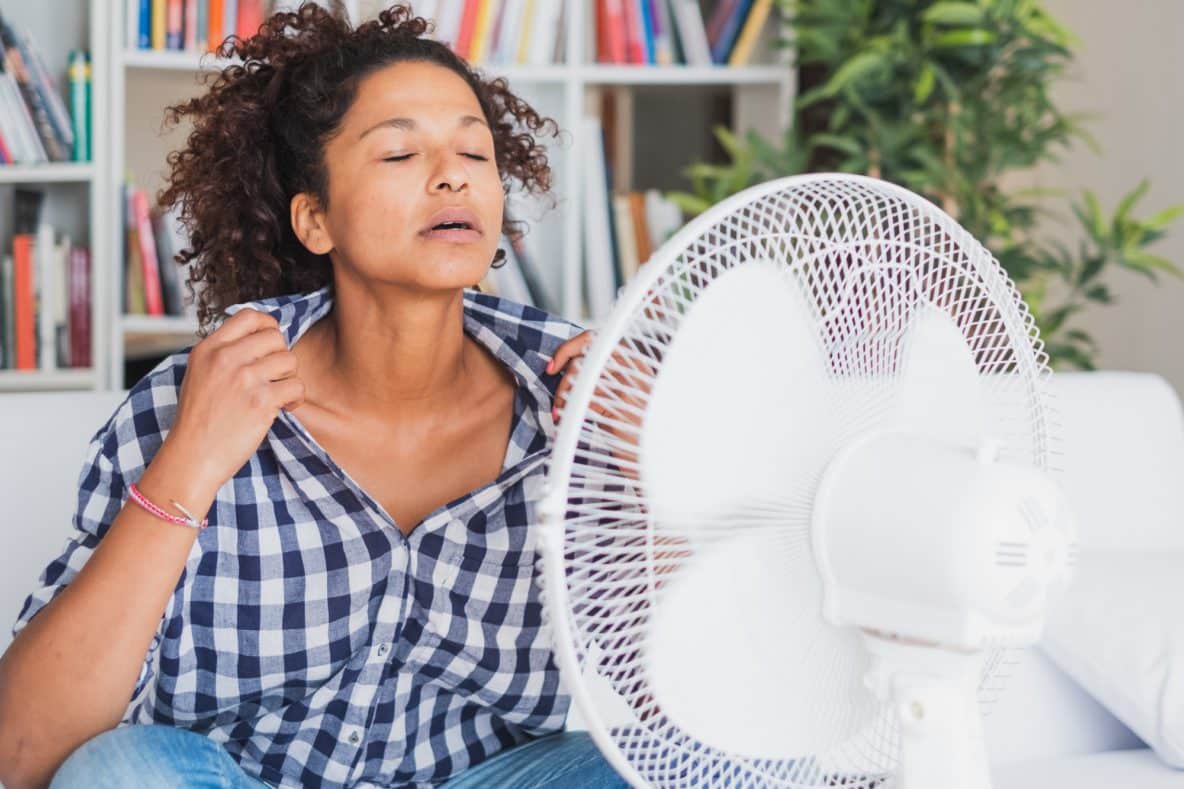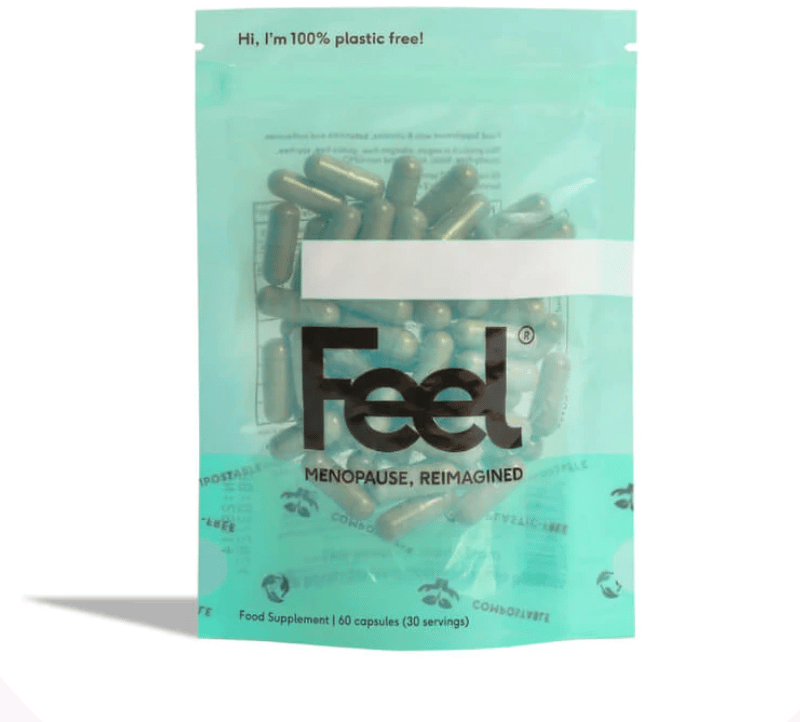Hot flushes (or hot flashes) and night sweats are some of the most common symptoms during menopause.
It's happening because of the fluctuating levels of oestrogen and progesterone, which are thought to have a very key role in your thermoregulation in your brain, your temperature control.
For some people it's debilitating, and it can be happening every 15 or 20 minutes. For other people, it's just occasional. But they can carry on during the night waking you up in the night just drenched in sweat, which is not only unpleasant but also disrupts your much needed sleep!
There are some common triggers that can cause hot flushes so being aware of yours can help you drastically reduce the occurrence of them.
You can watch the video below or listen to the podcast (episode 113).
Common Triggers of Hot Flushes
- Diet – these are things like alcohol and caffeine, or just drinking a hot drink. Spicy foods is another one, and food sensitivities, such as gluten or dairy.
- Stress – another trigger is stress. If you have a stressful experience, it can trigger a hot flush, and I've seen that happen quite a few times. But it's not just external stress like your workload or your circumstances of your day, it's also internal stresses on the body, like a blood sugar imbalance, or dehydration or digestive issues or nutrient deficiencies. That's because these things can all stimulate the release of cortisol, our stress hormone, which can trigger a hot flush.
- Smoking is a common trigger for hot flushes.
- Chemicals and toxins in the environment can also be triggers.
- Medications, such as antidepressants, hormone treatments, etc can also trigger temperature irregulations.
Coping with hot flushes
- Avoid your triggers. Try writing a diary or journal and see whether you can identify any patterns, then try and avoid the triggers.
- Regulate your diet. Include lots of phytoestrogens, these are plant-based estrogens, and they help to regulate your estrogen levels. The biggest source is soy (make sure it's organic) and flaxseeds (or linseeds). And make sure you are eating lots of healthy fats because when we're low in fats, our hormones aren't getting the essential raw materials that they need. And they obviously need to be working well for us to avoid these hot flushes.
- Manage your stress. Cortisol is a common trigger for hot flushes. So lots of relaxation, lots of self-care, meditation, mindfulness, walks in nature, Epsom salt baths, reading, whatever it is that you do to relax and make sure you're doing it every day for at least 10 to 20 minutes if you can. And if you can get as much sleep as you can, get some naps in during the day, or have a good lie in on the weekend, or whatever it is you need to do to catch-up.
- Minimize your exposure to toxins. Again, this is a huge topic, but the basics are to eat organic as much as possible, to avoid the pesticides, filter your tap water if you can, avoid plastics, and avoid those synthetic fragrances where possible because they can be triggers.
- Regulate your physical body temperature – wearing layers, carrying a small fan with you, making sure you're near a window or ventilation, and using natural fabrics for your clothes and bedding can all be helpful in minimising discomfort.
- Try body identical HRT – oestrogen and progesterone can help reduce or eliminate hot flushes and night sweats.
Supplements
Supplements can help. Make sure you're taking my recommended Top 5 supplements for your basic nutrients, then if you're not taking HRT, you can add in a formula like the Feel Menopause supplement which contains powerful botanicals, B vitamins and isoflavones to target common symptoms of the menopause, particularly hot flushes and night sweats.
Hormone Testing
If symptoms continue, you might want to find out where your hormones are at. And that's where we can help. We do hormone testing on a regular basis, and it helps us to get to the root cause of what might be going on for you, and put the right protocol in place to help.
If you'd like to know more about the testing we do, click here to contact us for more information on how we can help.
Stay cool! x


